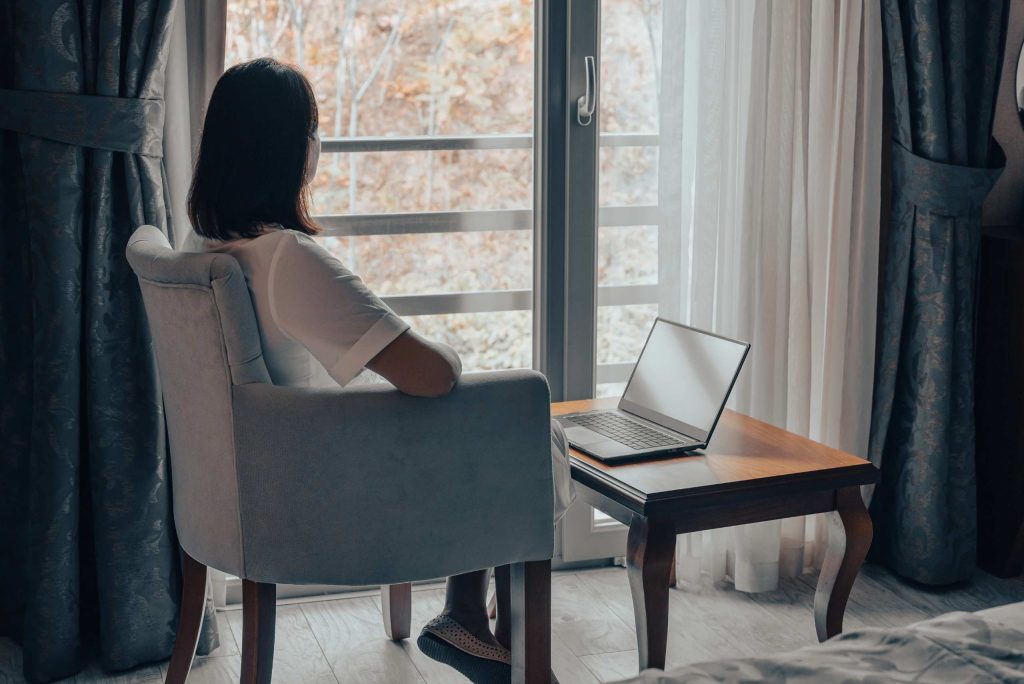
How Reflexology Helps Seasonal Affective Disorder (SAD)
Feeling low when the seasons change? You’re not imagining it. As the days get shorter and natural light fades, many people notice a shift in their mood, energy levels, and motivation. In the UK, where winter can feel long, grey and heavy, Seasonal Affective Disorder (SAD) affects around 1 in 3 people to some degree. If you find yourself feeling more tired, flat, anxious, or emotionally overwhelmed during autumn and winter, reflexology may be a gentle, supportive way to bring you back to balance. Let’s explore what SAD actually is and how reflexology can help.
What is Seasonal Affective Disorder (SAD)?
Seasonal Affective Disorder is more than just “winter blues.” It’s a form of depression that is triggered by seasonal changes, typically beginning in the autumn and lasting throughout winter. Common symptoms include:
- Low mood or lack of motivation
- Fatigue or low energy (even after sleep)
- Increased anxiety
- Difficulty concentrating
- Craving carbs or comfort foods
- Wanting to withdraw or be alone
- Disrupted sleep patterns
SAD is linked to reduced daylight, which can impact serotonin (your feel-good hormone), melatonin (your sleep hormone), and your circadian rhythm (your body’s internal clock). So yes, the change in light really does affect your mood and energy.
How Reflexology Helps Support SAD Symptoms
Reflexology works by applying gentle pressure to specific points on the feet that correspond to different systems in the body. By stimulating these reflexes, we help the body shift into a state of balance, encouraging better emotional and physical wellbeing. Here’s how it supports SAD specifically:
- Boosts Mood by Supporting Hormonal Balance
Reflexology focuses on reflex points linked to the endocrine system, including the pituitary gland, pineal gland, and hypothalamus. These glands play a huge role in mood regulation, sleep, and hormonal balance. Clients often tell me they leave sessions feeling lighter, more grounded, and more like themselves again.
- Reduces Anxiety and Overwhelm
SAD is closely linked with increased stress and anxiety. Reflexology encourages the body to move from fight-or-flight mode into rest-and-restore mode, giving your nervous system a much-needed reset. This can help calm racing thoughts, reduce emotional overload, and soften the physical effects of stress.
- Supports Better Sleep
The pineal reflex point is directly linked to melatonin production, the hormone that supports sleep. Many clients say, “I slept better after just one session.” When sleep improves, mood improves.
- Increases Energy and Improves Circulation
Cold weather and reduced motivation mean less movement and less energy. Reflexology helps increase circulation and improve the flow of energy throughout the body, leaving you feeling brighter and more refreshed.
Try This Simple Reflex Point at Home
Solar Plexus Point (centre of the foot beneath the ball)
- Press gently in small circular movements
- Inhale for 4, exhale for 6
This point encourages calm and helps soften anxiety.
Other Ways to Support SAD Alongside Reflexology
Small lifestyle habits can support how you feel through the winter months:
- Get outside in the morning for natural light exposure
- Add more movement into your day (even a 10-minute walk helps)
- Consider Vitamin D supplements (speak to your GP or pharmacist)
- Create cosy, slow rituals at home
Reflexology works beautifully alongside these practices, supporting your emotional, physical, and hormonal wellbeing.
A Gentle Reminder
You don’t have to push through winter feeling flat, tired, or disconnected from yourself. Reflexology offers:
- grounding
- nervous system regulation
- emotional support
Your wellbeing is so important, especially during the darker months. So if you're noticing mood dips with the change in season, I’d love to support you. You can book your reflexology session with us at our calm and welcoming clinic at ABWR Wellness and Reflexology here.